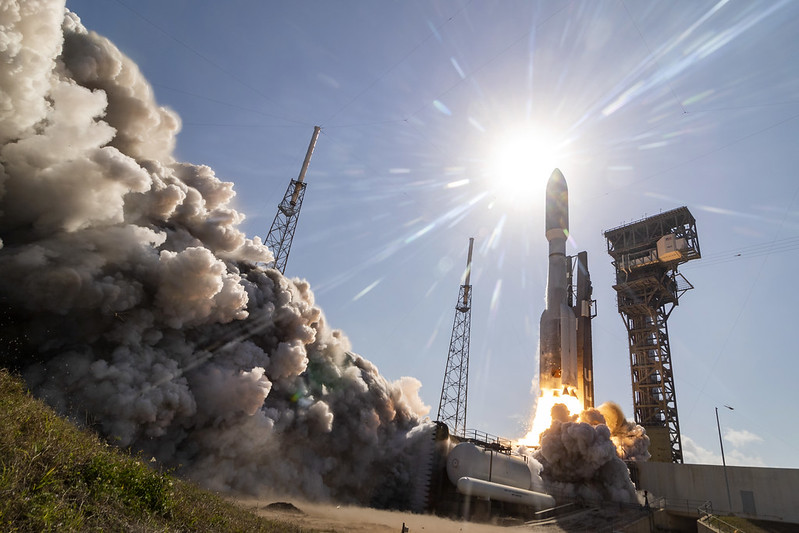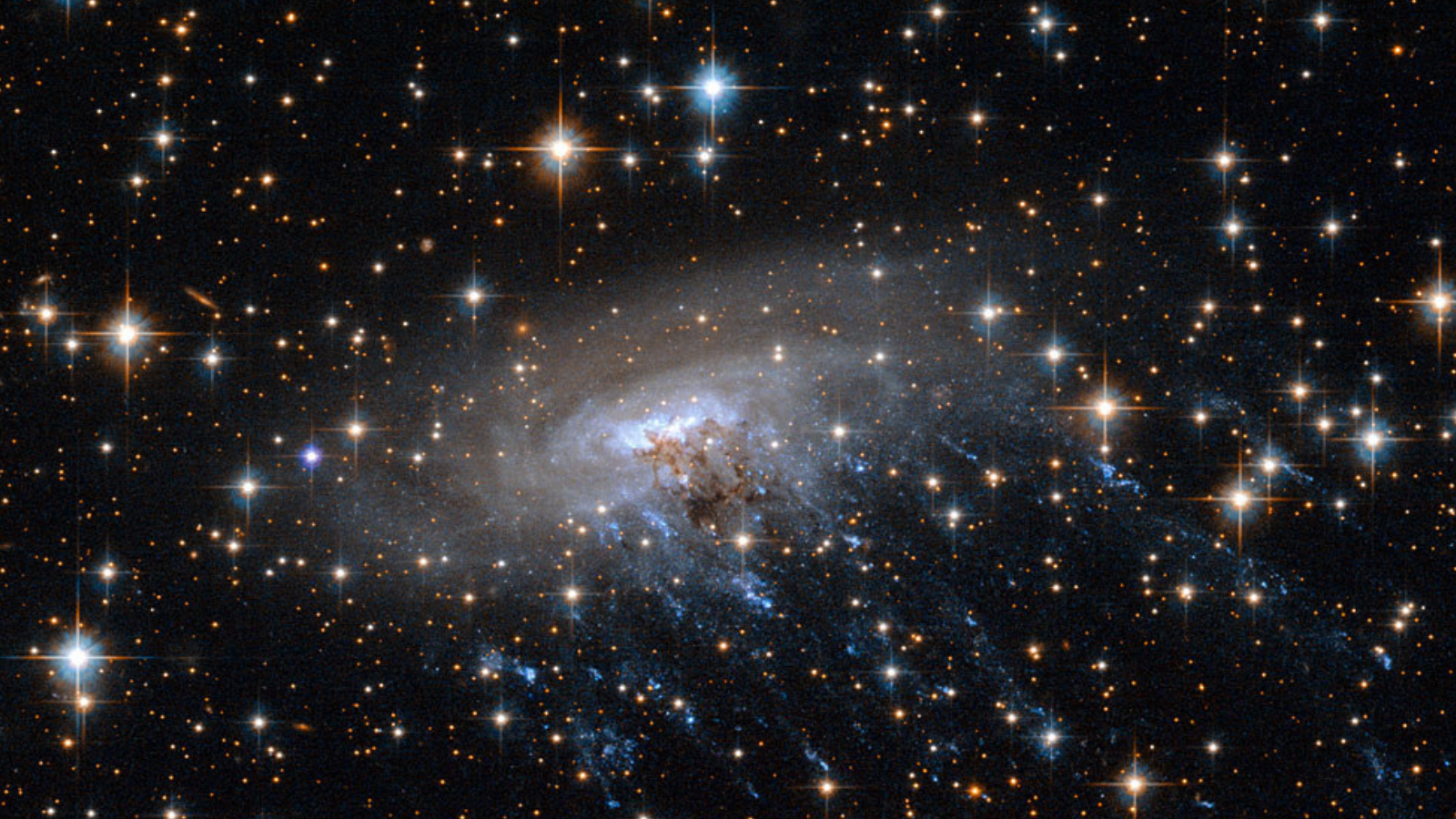Here's why the Space Force just launched a rocket as the world fights the coronavirus pandemic

Breaking space news, the latest updates on rocket launches, skywatching events and more!
You are now subscribed
Your newsletter sign-up was successful
Want to add more newsletters?

Delivered daily
Daily Newsletter
Breaking space news, the latest updates on rocket launches, skywatching events and more!

Once a month
Watch This Space
Sign up to our monthly entertainment newsletter to keep up with all our coverage of the latest sci-fi and space movies, tv shows, games and books.

Once a week
Night Sky This Week
Discover this week's must-see night sky events, moon phases, and stunning astrophotos. Sign up for our skywatching newsletter and explore the universe with us!

Twice a month
Strange New Words
Space.com's Sci-Fi Reader's Club. Read a sci-fi short story every month and join a virtual community of fellow science fiction fans!
The Space Force can't afford to shelter in place.
On Thursday (March 26), a United Launch Alliance Atlas V rocket launched the sixth and final Advanced Extremely High Frequency (AEHF-6) military communications satellite to Earth orbit, acing the first-ever mission for the U.S. Space Force.
The Atlas V was cleared to fly even though many activities around the nation and the world — including other rocket launches — have been grounded by the coronavirus pandemic. The launch was approved because the $1.4 billion AEHF-6 satellite is essential to national security, U.S. military officials said.
Video: Watch the Space Force launch the AEHF-6 satellite
Updates: The coronavirus pandemic impacts on space exploration
"Even in the face of a global pandemic, like the current COVID-19 crisis, we must continue to perform mission-essential tasks," Lt. Gen. John F. Thompson, commander of the Space and Missile Systems Center at Los Angeles Air Force Base, said in an interview with United Launch Alliance representatives that aired during the AEHF-6 launch webcast.
(COVID-19 is the disease caused by the new coronavirus. As of Friday, March 27, COVID-19 had killed more than 25,000 people worldwide, according to data compiled by Johns Hopkins University.)
AEHF-6 "is designated mission-essential, and it's because the AEHF constellation supports the president of the United States, other national leaders and the joint forces with critical strategic communications around the planet," Thompson said. "And this particular launch extends that capability out into the timeframe beyond 2030."
Breaking space news, the latest updates on rocket launches, skywatching events and more!
But Thompson also stressed that COVID-19 was very much on the minds of the AEHF-6 launch team, which took "every precaution to ensure our workforce is safe."
.@SpaceForceCSO addresses the force on the spread of #COVID19. pic.twitter.com/aM9R6ApgXcMarch 27, 2020
The six-satellite AEHF constellation circles Earth in geostationary orbit, about 22,200 miles (35,700 kilometers) above the planet. From that lofty perch, the spacecraft provide secure, jam-proof communications between government officials and warfighters on the ground.
Lockheed Martin is the prime contractor for the $15 billion AEHF network, which is a follow-on to the U.S. Air Force's Milstar communications constellation. The other five AEHF satellites launched in August 2010, May 2012, September 2013, October 2018 and August 2019. The spacecraft have a design lifetime of 14 years.
The AEHF satellites aren't the only space assets that have been deemed critical to U.S. national security. A variety of satellites meet that description, and the Space Force is committed to keeping all of them up and running despite the coronavirus outbreak, said Gen. John "Jay" Raymond, chief of space operations for the new military branch, which was officially established in December 2019. (The Space Force, by the way, resides within the U.S. Air Force, much as the Marine Corps is part of the Department of the Navy.)
"I'm especially proud of our military professionals who continue to ensure that the vital space systems remain operational in support of our nation," Raymond said in a video tweeted out by the Space Force on Friday. "Thanks to their professionalism and dedication to duty, critical capabilities such as the Global Positioning System and satellite communications are available 24/7 to enable civil authorities and safeguard our national defense."
Thursday's launch provided some rare action for space fans in these strange lockdown days. The next high-profile liftoff firmly on the docket is the April 9 launch of three new International Space Station crewmembers, who will ride to orbit from Baikonur Cosmodrome in Kazakhstan. The coronavirus pandemic has delayed a number of other planned missions, resulting in a schedule littered with "TBDs."
- Coronavirus pandemic: Full space industry coverage
- What is the U.S. Space Force?
- Gallery: declassified US spy satellite photos & designs
Mike Wall is the author of "Out There" (Grand Central Publishing, 2018; illustrated by Karl Tate), a book about the search for alien life. Follow him on Twitter @michaeldwall. Follow us on Twitter @Spacedotcom or Facebook.
OFFER: Save at least 56% with our latest magazine deal!
All About Space magazine takes you on an awe-inspiring journey through our solar system and beyond, from the amazing technology and spacecraft that enables humanity to venture into orbit, to the complexities of space science.

Michael Wall is a Senior Space Writer with Space.com and joined the team in 2010. He primarily covers exoplanets, spaceflight and military space, but has been known to dabble in the space art beat. His book about the search for alien life, "Out There," was published on Nov. 13, 2018. Before becoming a science writer, Michael worked as a herpetologist and wildlife biologist. He has a Ph.D. in evolutionary biology from the University of Sydney, Australia, a bachelor's degree from the University of Arizona, and a graduate certificate in science writing from the University of California, Santa Cruz. To find out what his latest project is, you can follow Michael on Twitter.

